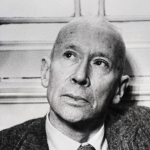(excerpt)
From Book I
From Book I
And so bifel, whan comen was the tyme
Of Aperil, whan clothed is the mede
With newe grene, of lusty Veer the pryme,
And swote smellen floures white and rede,
In sondry wises shewed, as I rede,
The folk of Troie hir observaunces olde,
Palladiones feste for to holde.
And to the temple, in al hir beste wyse,
In general ther wente many a wight,
To herknen of Palladion the servyse;
And namely, so many a lusty knyght,
So many a lady fressh and mayden bright,
Ful wel arayed, both meste, mene, and leste,
Ye, bothe for the seson and the feste.
Among thise othere folk was Criseyda,
In widewes habit blak; but natheles,
Right as our firste lettre is now an A,
In beautee first so stood she, makeles;
Hire goodly lokyng gladed al the prees.
Nas nevere yet seyn thing to ben preysed derre,
Nor under cloude blak so bright a sterre
As was Criseyde, as folk seyde everichone
That hir bihelden in hir blake wede;
And yet she stood ful lowe and stille allone,
Byhynden other folk, in litel brede,
And neigh the dore, ay under shames drede,
Simple of atir and debonaire of chere,
With ful assured lokyng and manere.
This Troilus, as he was wont to gide
His yonge knyghtes, lad hem up and doun
In thilke large temple on every side,
Byholding ay the ladies of the town,
Now here, now there; for no devoc{.i}oun
Hadde he to non, to reven hym his reste,
But gan to preise and lakken whom hym leste.
And in his walk ful faste he gan to wayten
If knyght or squyer of his compaignie
Gan for to syke, or lete his eighen baiten
On any womman that he koude espye;
He wolde smyle, and holden it folye,
And seye him thus, "God woot, she slepeth softe
For love of the, whan thou turnest ful ofte!
"I have herd told, pardieux, of your lyvynge,
Ye loveres, and youre lewed observaunces,
And which a labour folk han in wynnynge
Of love, and in the kepyng which doutaunces;
And whan your preye is lost, woo and penaunces.
O veray fooles! nyce and blynde be ye!
Ther nys nat oon kan war by other be."
And with that word he gan cast up the browe,
Ascaunces, "Loo! is this naught wisely spoken?"
At which the god of love gan loken rowe
Right for despit, and shop for to ben wroken.
He kidde anoon his bowe nas naught broken;
For sodeynly he hitte him atte fulle;
And yet as proud a pekok kan he pulle!
O blynde world, O blynde entenc{.i}oun!
How often falleth al the effect contraire
Of surquidrie and foul presumpc{.i}oun;
For kaught is proud, and kaught is debonaire.
This Troilus is clomben on the staire,
And litel weneth that he moot descenden;
But al-day faileth thing that fooles wenden.
As proude Bayard gynneth for to skippe
Out of the wey, so pryketh hym his corn,
Til he a lasshe have of the longe whippe;
Than thynketh he, "Though I praunce al byforn
First in the trays, ful fat and newe shorn,
Yet am I but an hors, and horses lawe
I moot endure, and with my feres drawe."




















Comment form: